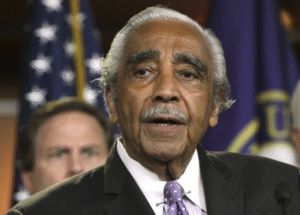New Jersey Transit’s train engineers reached a tentative agreement on Sunday, ending a three-day strike that disrupted service for approximately 100,000 daily commuters, including routes to Newark Airport and across the Hudson River to New York City. The union announced that its members would return to work on Tuesday, resuming regular train schedules.
The strike, which began on Friday, marked the state’s first transit strike in over 40 years. It forced commuters who normally rely on New Jersey Transit to seek alternative transportation, such as buses, cars, taxis, or boats, or even stay home. The main issue during the strike was how to implement a wage increase for the engineers without causing financial difficulties for the transit agency.
Initially, the union stated that regular train service would resume on Monday, but later clarified that it would begin on Tuesday at 12:01 a.m. The delay was necessary, according to NJ Transit, to inspect and prepare the infrastructure for full service, which would take about 24 hours.
Details of the agreement have not been fully disclosed, but union representatives stated that the key issue was wages. The agreement reportedly provides an hourly pay increase that exceeds the proposal rejected by the union last month. Union officials also emphasized that the wage boost was achieved without causing significant budget issues or requiring a fare increase.
Tom Haas, the union’s general chairman at NJ Transit, said the union had demonstrated ways to increase engineers’ wages without straining the agency’s budget. The agreement will now be presented to the union’s 450 members for ratification, and it also requires approval from NJ Transit’s board during its next meeting on June 11.
New Jersey Governor Phil Murphy expressed satisfaction with the outcome, calling it a “very good outcome” that balances fairness for NJ Transit employees with affordability for commuters and taxpayers. NJ Transit CEO Kris Kolluri described the deal as “fair and fiscally responsible” and thanked the union for negotiating in good faith.
On Monday, buses will be provided as an alternative, but both Murphy and Kolluri urged commuters to work from home if possible for one more day to help reduce congestion. A month earlier, union members had rejected a labor agreement with management.
NJ Transit, the third-largest transit system in the U.S., operates buses and trains, making nearly 1 million weekday trips, including into New York City. The strike had halted all commuter trains, impacting travel between New York City’s Penn Station and northern New Jersey, as well as service to Newark Airport.
The union had previously stated that engineers were leaving NJ Transit for higher-paying jobs at Amtrak and Long Island Railroad. The union had requested an average salary increase to $170,000 per year, up from the $113,000 average salary the engineers were reportedly earning. NJ Transit leadership, however, disputed these figures, claiming that engineers’ average total earnings were $135,000 annually, with some top earners making more than $200,000.















